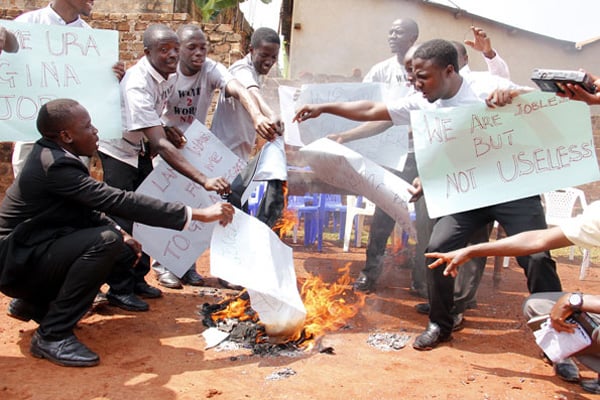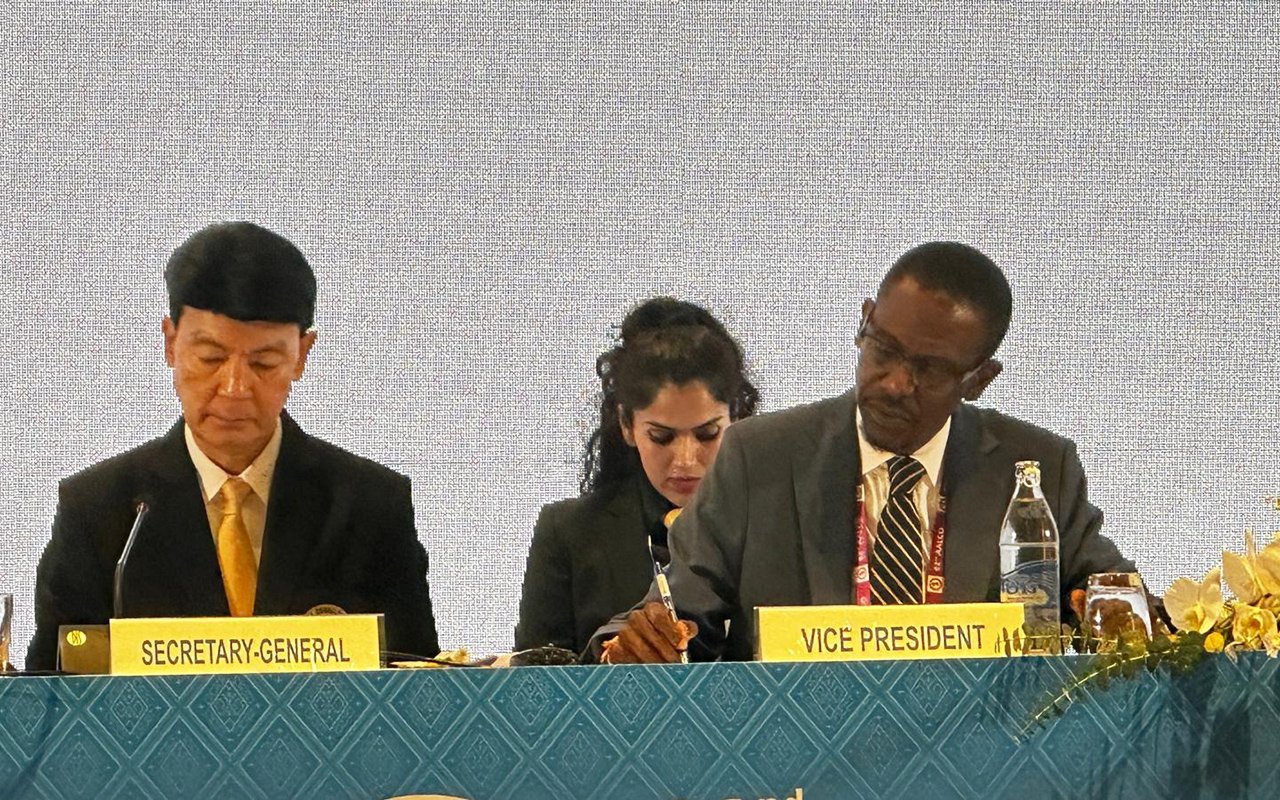Prime
Effectively skill young people to foster self-employment, says UN

In this file photo, members of National Association of the Unemployed burning placards after addressing journalists in Kampala in 2014. There is an army of mostly young Ugandans who are effectively unemployed. WB data shows that among youth, three out of five work in unpaid occupations, contributing to household enterprises. FILE PHOTO
What you need to know:
- Preliminary 2024 census figures show that Uganda is a young country, with 50.5 percent (23.1 million) of the country’s population aged under 17.
The United Nations (UN) has urged the Ugandan government to enhance efforts in skilling young people to address rampant youth unemployment in the country.
While the Ugandan government has implemented various skilling programs such as the presidential initiative for skilling the Girl/Boy Child project, the UN says more needs to be done to effectively tackle youth unemployment.
“For these programs to have a transformative effect, we must expand them to reach a critical mass,” UN’s resident coordinator in Uganda, Susan Namondo told Monitor on Tuesday.
She added: “Even with the commendable work being done, approximately 50 percent of the 7.7 million Ugandans living in rural areas are neither in education, training, nor employment; they are left floating.”
Preliminary 2024 census figures show that Uganda is a young country, with 50.5 percent (23.1 million) of the country’s population aged under 17.
Census data also reveals that 22.7 percent (10.4 million) of the population are youth aged 18-30, while 55.6 percent (25.5 million) of the working-age population are 14-64 years-old.
“Every young person should have the capacity to realize their full potential. This means providing access to quality education and ensuring that youth participate in decision-making processes that impact their lives,” Namondo observed.
Anne Sizomu, a programme specialist for adolescent and youth sexual and reproductive health at the United Nations Population Fund (UNFPA), said there is need to address the vulnerabilities of young people to help them realize their potential.
“If a young person, particularly a girl, doesn’t have access to basic necessities like food, even if they have the information, their skills may be undermined. They might face exploitation or lack of access to sanitary products. This is why integrating livelihood support with skilling is crucial,” Sizomu said.
She added: “With one in four adolescents under 19 either pregnant or having had a child, we are losing potential. Many young people are losing interest in education because they need to earn money. The impact of COVID-19 has left learners feeling disillusioned and disengaged from education.”
Danish Ambassador to Uganda Signe Winding Albjerg said skilling youths also enhances economic growth.
“How we engage and empower them today will define the future of our nations. In my interactions with young people across Uganda and beyond, their fresh perspectives and innovative ideas have consistently inspired me. Such ideas are vital in driving forward thinking and creativity,” Albjerg earlier told Monitor.




